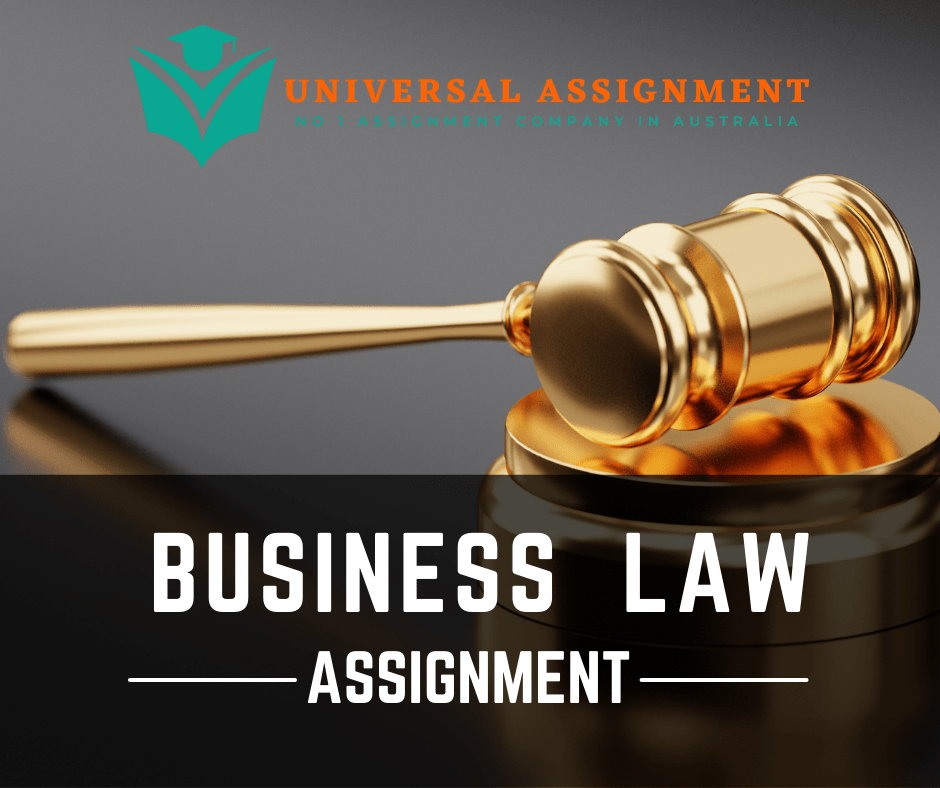
Issue
Whether she can successfully sue ‘Queen Treasure’ for damages. Advise Denial. Support your answer with precedents, legal principles, cases, and legislation.
Rule
Civil liability Act 2002.
Application
According to the facts of the given case which states that Daniel owns a construction business. Four weeks earlier she saw an advertisement in the local newspaper for a company named Queen Treasure big local hiring business which was selling building equipment. That was also giving the option of hiring the equipment. Further, the company stated that in case of any mishappening the company will pay the amount of $ 10,000 as compensation. By seeing this advertisement Daniel decided to hire the equipment from the company Queen Treasure. She asked her labor to go and buy the pieces of equipment from that company which was some ladder as well as planks. This equipment was for the purpose of painting the client’s house.
When Jam his worker went to the company Queen Treasure to buy the equipment then the company manager asked Jam to sign an agreement while hiring the equipment for painting the house. Jam informed same thing Daniel she asked the manager about the document that what does it contains. The manager then told me that the agreement contains something concerning insurance nothing other than that. Daniel agreed and asked Jam to sign and take the pieces of equipment while he came and started painting the house of the client. The ladder collapsed as the rope which protects the ladder from collapsing was badly worn. Jam suffered injury also the house which he was painting the wall was also broken.
Daniel thought to sue the company Queen Treasure to take the compensation but the agreement which was signed by the worker Jamcontained that if any injury suffered while wearing the equipment then the company will not be liable or held responsible for the injury. Here Daniel can sue the company Queen Treasure as the manager has breached their duty by providing wrong information about the agreement and the person who signed was illiterate and it was the duty of the manager to read and notify the person correctly about the term and conditions of the agreement.
Hence the Company is liable under Section 43 of Civil liability act 2002 here this section states that if a person breaches their statutory duty he will be held liable and here the manager had breached its duty by telling wrong information of the agreement.
Conclusion
At last, it is concluded that Daniel hired equipment from the company Queen Treasure and also that company stated in the advertisement that they will give compensation of $ 10,000. Daniel hired the equipment and Jam signed the agreement as informed by the manager of that company. But the ladder collapsed and when Daniel wanted to sue the company she got to know that the agreement contains a different thing which was that the company will not be responsible for any mishappening. Hence the company Queen Treasure is liable under section 42 of the Civil Liability Act 2002 for breaching its statutory duty. As the manager of that company informed wrong contents of the agreement and also committed fraud.
Issue
Whether the advertisement was a puff which was advertised by Queen Treasure?
Rule
Competition and Consumer Act 2010.
Application
According to the facts of the given case, Daniel is the owner of the construction business. Four weeks ago she saw an advertisement in the newspaper that contains a company which was giving the equipment named Queen Treasure. This company also claimed that if the person using their types of equipment faces any injury then the company will give them the compensation of $ 10,000. Daniel was interested in the advertisement and wanted to hire the equipment of the company Queen Treasure.
When Jam his worker went to the company Queen Treasure to buy the equipment then the company manager asked Jam to sign an agreement while hiring the equipment for painting the house. Jam informed same thing Daniel she asked the manager about the document that what does it contains. The manager then told me that the agreement contains something concerning insurance nothing other than that. Daniel agreed and asked Jam to sign and take the pieces of equipment while he came and started painting the house of the client. The ladder collapsed as the rope which protects the ladder from collapsing was badly worn. Jam suffered injury also the house which he was painting the wall was also broken.
Hence the company will be held liable for misrepresentation also under schedule 2 of the Competition and Consumer Act 2010. As well as of Section 18 of the Competition and Consumer Act 2010 states that misleading or deceptive conduct which means that if a person or a company dealing in business misleads a person or gives wrong information about the policies or other information concerning the company. Then the person, as well as the company misleading, will be held liable. Here in the present case, the company is misleading by the advertisement that if an injury is suffered after using their equipment then compensation will be given by the company but also buying the equipment then the agreement is being signed which states that the company is not responsible. The manager misleads the person signing the agreement as this is for insurance purposes.
Conclusion
At last, it is concluded that Daniel owns a construct action business where she saw the advertisement and send his worker to hire the equipment from queen Treasure. But there the manager misleads as he asked the worker to sign the agreement which was regarding the company is not having any liability if an injury is suffered but the manager told the worker that it was not for the insurance. Here the company is, on one hand, giving advertisement of compensation of $ 10,000 if an injury is suffered and on the other hand making the person hiring the equipment sign the agreement. The company is liable under Section 18 of the Competition and Consumer Act 2010.
(C)
Issue
If Jam was forced (by Queen Treasure) to Sign the agreement
Relevant Law Applicable
Common -Law, Australia
Australian Consumer Law 2010 (Cth)
Analysis
According to the facts of the case, Denial is a business graduate who runs the business of construction business. She saw an advertisement in the newspaper stating that big local equipment hiring business is offering building equipment and will be also providing compensation of $10,000 in the account of any accident happening with their equipment.
According to the Contract Law of Australia, the obligations of the parties are determined by the terms that are specified in the contract. In the entire situation, a pre-contractual statement was framed by Queen Treasure based on which the agreement was signed by James. Pre-contractual Mr. presentation provides contractual remedies following the Competition and Consumer Act 2010(Cth). According to section 181 of the Act, it is the duty of a person not to trade or engage in a conduct or an activity which is misleading or deceptive for the other party. In the case of Google Inc V ACCC2the court came to the conclusion that misleading and deceptive conduct amounts to a void contract. For mere representation, the damaged party has the right to claim for breach of the contract on account of Mere representation and according to section 18 of the Australian Consumer Law.
Conclusion
Jam was not forced (by Queen Treasure) to sign the agreement but at the same time, the pre-contractual were misleading and deceptive for which Queen Treasure would be held liable for damages.
(ii)
Issue
If Jam was intoxicated at the time of signing the Agreement
Relevant Law Applicable
Common- Law, Australia
Goods Act 1958 (Vic)
Analysis
According to the facts of the situation, the agreement that was signed by Queen Treasure –
“The owner of hired goods accepts no responsibility for personal injuries or damages suffered by persons using our equipment during the period of hire, irrespective of whether such injuries are caused by the breach of contract, negligence or any other cause whatsoever”.
According to the provisions of the contract law, a contract is voidable if anyone party at the time of signing the contract is intoxicated which means the party would not be in the position to understand the terms of the contract3. In such a situation, the party has the right to ratify the contract that is made on account of intoxication. In the case of Gibbons V Wright4 the court stated that the contract on account of intoxication is considered to be an unfair contract at its might lack some evidence of understanding.
Conclusion
The contract based upon the condition of intoxication would be an invalid contract. Therefore in such a situation, Denial would not be able to claim compensation from Queen Tressure since there is no existence of a valid contract between the parties.
(iii)
Issue
If Jam was two months from being an adult while signing the agreement.

Relevant Law applicable
Common Law, Australia
Supreme Court Act (Vic)
Analysis
According to the facts of the current scenario, it has been stated that Jam was two months old while signing the agreement. Both the provision of common law as well as the statute does not allow minors to enter into a contract. As per common law, the rules specify that a contract made by a person under the age of 18 is considered a voidable contract. According to section 7 of the Goods Act 1958(Vic), a contract that is fame by minors on account of necessity is considered as binding on both parties. In the following situation, the contract rain was not based upon necessity.
In In the case of Nash V Inman5 the court held that the minor cannot enter into a contract, but at the same time he must repay a supplier on account of the service rendered if the services are for necessities.
Conclusion
According to the facts of the situation and the application of relevant laws and legislations, it can be duly stated that the contract signed by Jam would not amount to a valid contract if he is a minor at the time of signing the contract. No valid contract would be there between the parties.
D.
At the time of writing the answers, the situations have been analysed, the relevant laws have been made applicable, and the laws that are the most appropriate in the following situations have been applied. Different laws have been made applicable at the time of writing such as Common Law, Civil Liability Act 2002, and Australian consumer law 2010 (Cth). According to the requirement of the question, different legislation has been also made applicable at the time of writing the solution. The different types of legislative laws that have been made applicable are – Goods Act 1958 (Vic), the Supreme Court act (Vic), and the competition and consumer law of Australia.
The different types of cases that have been made applicable at the time of Analyzing the situation is:-
- Google Inc V Acc [2013] HCA 1
- Gibbons v Wright (1954) 91 CLR 423
- Nash v Inman[1908] 2 KB 1
Bibliography
Laws and Legislations
Common Law, Australia
Australian Consumer Law 2010 (Cth)
Supreme Court Act (Vic)
Case Laws
Google Inc V Acc [2013] HCA 1
Gibbons v Wright (1954) 91 CLR 423
Nash v Inman[1908] 2 KB 1
1 Australian Consumer Law 2010 (Cth)- s.18
2 GOOGLE INC V ACCC [2013] HCA 1
3 Goods Act 1958 (Vic)- s7(1)
4 Gibbons v Wright (1954) 91 CLR 423
5 Nash v Inman[1908] 2 KB 1


